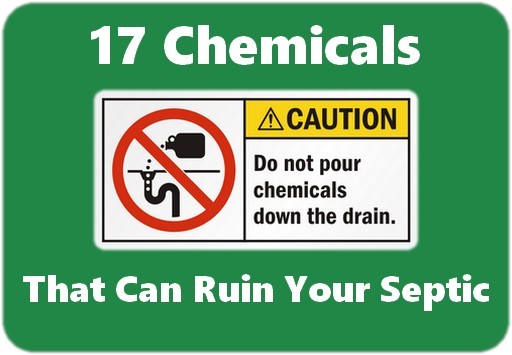There are two very important things to remember when you are going to pour something down your drain.
The first is that your septic system does allow fluids to drain out through a leach field which will in turn, enter the environment and make its way into the local ecosystem.
The second is that your septic system requires bacteria to break down solids and prevent damage to your system.
Any substance that could be toxic to the water supply - or kill off the necessary bacteria in your septic tank, should never be emptied into your system in large quantities.
For instance, rinsing off a paintbrush that was used for varnish is fine. Pouring the leftover varnish down the drain? You'd better not.
